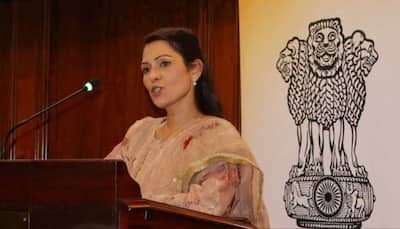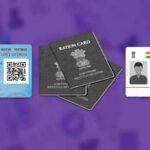Indian-origin British Member of Parliament Priti Patel on Thursday condemned the terror attack in Pahalgam, Jammu and Kashmir, which took 26 lives, as a “murderous act of terrorism” and called upon the British government to stand with India at this moment of crisis.
Speaking to the House of Commons, Patel expressed condolences and urged that the UK support India in tackling cross-border terrorism. “My condolences, thoughts, and prayers are with all those affected by the violent terrorism in Pahalgam,” she said. “We must call this what it is — terrorism — and stand in lockstep with our friends in India.”
Patel underscored the long-standing India-UK security partnership, citing important milestones like the New Delhi Declaration (2002), the Strategic Partnership agreement (2016), the Comprehensive Strategic Partnership (2022), and the UK-India 2030 Roadmap. “Security arrangements have been watertight,” she said, adding, “We must always be aligned with India in the face of such attacks.”
My thoughts continue to be with those affected by the terrorist attack in Pahalgam. We must stand with our Indian friends at this time. In the House of Commons I pressed the UK Government on what they are doing to support the Government of India in response, and how we can work…
— Priti Patel MP (@pritipatel)
In a sharply phrased intervention, the Conservative MP asked the UK government to clarify its intelligence on the attackers. “Does the government believe the proscribed group Lashkar-e-Taiba was responsible, or are there confirmed cross-border links to Pakistan?” she wanted to know, requesting the UK’s analysis of the origin of the attack.
Patel also raised the timing of the attack, which occurred during a visit to India by US Vice President JD Vance and his family. “Is this coincidence or part of a broader pattern of deliberately timed attacks?” she questioned.
Raising wider concerns, Patel asked if the UK has evaluated connections between terrorist groups in Kashmir and international networks like Hamas, warning of potential consequences for British national security. She also requested steps against communal tensions from spilling over into the UK and requested information on security in the Indian High Commission in London.
Lastly, Patel called upon the UK to use its diplomatic powers to assist in diffusing increasing tensions between India and Pakistan.
The Pahalgam terrorist attack took place amidst the scenic Baisaran Valley, also called “Mini Switzerland.” Terrorists armed with automatic weapons fired at tourists, shooting dead 26 individuals—including a Nepali citizen—and leaving several others seriously injured. Witnesses reported scenes of panic as tourists fled in terror into the open landscape.
India responded by taking quick diplomatic and strategic measures, such as indefinitely suspending the Indus Waters Treaty with Pakistan and ejecting all the Pakistani nationals in India. Prime Minister Narendra Modi promised to track down the perpetrators and their backers, declaring: “Terrorism will not go unpunished.”
Pakistan’s tit-for-tat action by shutting its airspaces to Indian airlines led a like response in New Delhi, followed by a downgrade of diplomatic representation between the two countries and increased international apprehension regarding deteriorating volatility within South Asia.
Stay informed on all the , real-time updates, and follow all the important headlines in and on Zee News.








